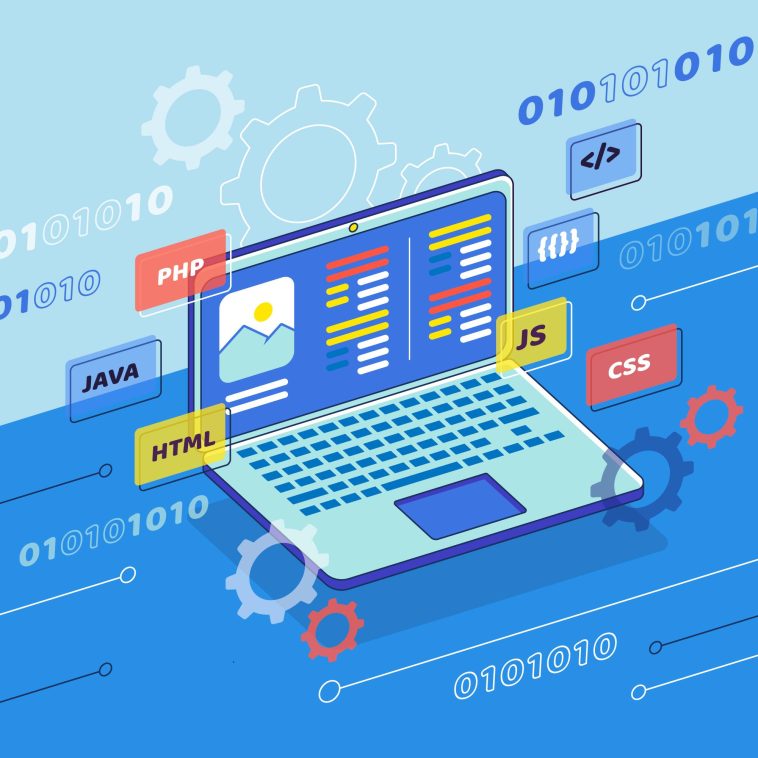In the ever-evolving landscape of web development, PHP stands tall as one of the most widely used programming languages. Its versatility and robustness have made it a cornerstone for creating dynamic web applications. When it comes to developing web applications using PHP, utilizing a framework significantly streamlines the process, enhancing efficiency and scalability. This blog post delves into the core features of various PHP-based frameworks, shedding light on their unique offerings and functionalities.
Understanding PHP Frameworks
A PHP framework serves as a foundational structure that simplifies and accelerates the development of web applications by providing a set of pre-built modules, libraries, and tools. These frameworks adhere to the MVC (Model-View-Controller) architecture, promoting organized and modular code development.
Core PHP Framework Features
Before delving into specific PHP frameworks, it’s crucial to highlight the essential features that define them:
- MVC Architecture: Most PHP frameworks follow the MVC pattern, separating the application logic, user interface, and data handling, ensuring a clear separation of concerns.
- Database Support: Integration with databases is vital in web development. PHP frameworks commonly support various databases, enabling seamless connectivity and interaction.
- Security Measures: Robust security features like input validation, CSRF protection, and encryption mechanisms are integral components of reliable PHP frameworks, ensuring safer web applications.
- Template Engine: Many frameworks offer templating engines that simplify the creation of views, allowing developers to focus on design without mixing it with business logic.
- Community Support and Documentation: Thriving communities and comprehensive documentation facilitate learning, troubleshooting, and continuous improvement.
Exploring PHP-Based Frameworks
Laravel
Core Features:
- Eloquent ORM: Simplifies database interactions through expressive syntax.
- Blade Templating Engine: Allows intuitive and reusable templates for views.
- Artisan Console: Facilitates command-line operations for development tasks.
- MVC Architecture: Enforces a structured approach to application development.
- Community Support: Active and vibrant community providing extensive resources and packages.
Symfony
Core Features:
- Flexibility: Offers components that can be used independently or as part of the full-stack framework.
- Twig Templating Engine: A flexible and secure templating engine for creating powerful views.
- Dependency Injection: Promotes reusable and decoupled code by injecting dependencies.
- Doctrine ORM: Provides powerful database abstraction and simplifies data manipulation.
- Scalability: Suitable for both small-scale and enterprise-level applications.
CodeIgniter
Core Features:
- Lightweight: Emphasizes simplicity and ease of use without imposing strict conventions.
- Excellent Documentation: Clear and concise documentation for quick learning and reference.
- Security: Offers built-in protection against various security threats.
- Good Performance: Optimized for speed and efficiency, ideal for smaller projects.
- Compatibility: Supports older php website framework versions, ensuring wider compatibility.
Yii Framework
Core Features:
- High Performance: Optimized for efficiency and performance, suitable for high-traffic applications.
- Gii Code Generator: Speeds up development through automatic code generation.
- Security Measures: Provides robust security features, including input validation and prevention of common vulnerabilities.
- Caching Support: Offers caching solutions for improved performance.
- Extension Ecosystem: Rich library of extensions and components for additional functionalities.
Comparing Key Aspects
Performance
Performance is a critical factor in web development. Laravel, with its robust caching system and optimized codebase, showcases impressive performance. Symfony, known for its flexibility, might require additional configuration for optimal performance. CodeIgniter’s lightweight nature contributes to its faster execution, while Yii’s emphasis on performance makes it a top choice for high-traffic applications.
Learning Curve
The learning curve varies across frameworks. Laravel’s extensive documentation and intuitive syntax make it relatively easy for beginners. Symfony’s flexibility can require a steeper learning curve due to its vast ecosystem of components. CodeIgniter’s simplicity makes it beginner-friendly, whereas Yii’s learning curve might be steeper due to its focus on performance and enterprise-level features.
Community Support
Laravel boasts a strong and active community, continuously contributing packages and resources. Symfony’s community is equally robust, offering extensive support and resources. CodeIgniter, despite its simplicity, has a dedicated user base and decent community support. Yii, known for its performance, has a supportive community offering various extensions and tools.
Security
Ensuring robust security measures is paramount in web development. Laravel and Symfony provide comprehensive security features by default, offering protection against common vulnerabilities. CodeIgniter prioritizes security with built-in features, making it a safe choice. Yii’s emphasis on security through input validation and prevention of vulnerabilities reinforces its reliability.
Use Cases
Choosing the right framework often depends on the project’s scale and requirements. Laravel’s rich ecosystem and ease of use make it suitable for a wide range of applications. Symfony’s flexibility caters well to complex projects requiring customization. CodeIgniter’s simplicity suits smaller projects or applications where lightweight performance is crucial. Yii’s performance-driven approach makes it ideal for large-scale applications handling significant traffic.
Conclusion
Selecting the right PHP framework greatly influences the development process and the quality of the resulting web application. Laravel excels in its comprehensive ecosystem and ease of use, while Symfony stands out for its flexibility and modularity. CodeIgniter’s simplicity and performance make it ideal for smaller projects, while Yii’s emphasis on performance and security suits larger, high-traffic applications.
In conclusion, evaluating the specific needs of a project in terms of scalability, performance, and community support is crucial in choosing the most suitable PHP framework. Each framework mentioned here offers a unique set of features, empowering developers to create robust and efficient web applications tailored to their requirements.
The world of PHP-based frameworks continues to evolve, with each iteration bringing enhancements and new functionalities. Stay tuned to keep abreast of the latest developments and make informed choices for your web framework on php development endeavors.




